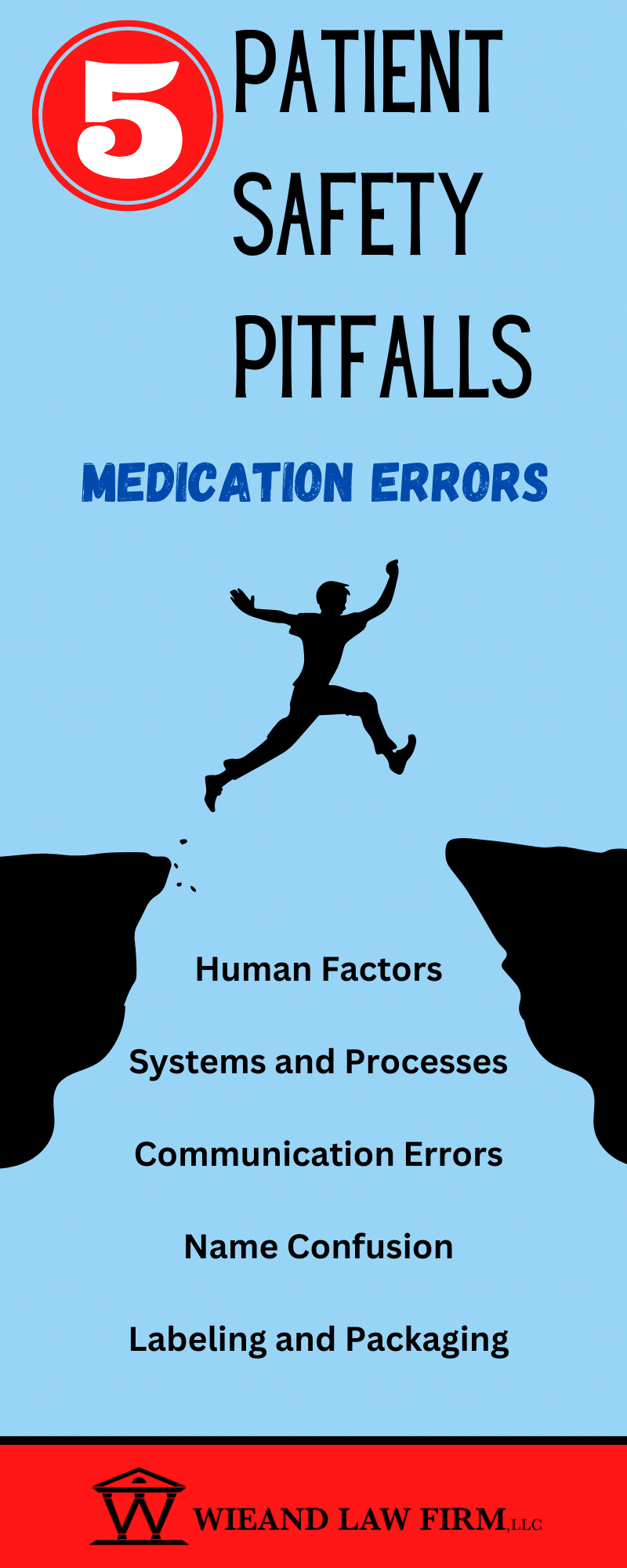 Medication errors in nursing homes can produce fatal outcomes, according to Philadelphia nursing home neglect lawyers. Each year, over 800,000 medication errors are reported at nursing homes. Seemingly small errors, often from miscommunication, can have a permanent impact on a resident’s life. Nursing home residents often have several comorbid conditions, take multiple mediations, and have cognitive issues that prevent them from understanding their own medication schedules. Philadelphia nursing home neglect lawyers say that these factors can put residents at greater risk of injury from medication errors.
Medication errors in nursing homes can produce fatal outcomes, according to Philadelphia nursing home neglect lawyers. Each year, over 800,000 medication errors are reported at nursing homes. Seemingly small errors, often from miscommunication, can have a permanent impact on a resident’s life. Nursing home residents often have several comorbid conditions, take multiple mediations, and have cognitive issues that prevent them from understanding their own medication schedules. Philadelphia nursing home neglect lawyers say that these factors can put residents at greater risk of injury from medication errors.
Medication use entails multiple steps and multiple clinicians. Errors can occur during any of these steps, including:
Medication malpractice lawyers share 5 main pitfalls that result in nursing home medication errors.
Philadelphia nursing home neglect lawyers cite stress, lack of time, and an excessive workload due to nursing home understaffing can contribute to medication errors. There are several human factors that can result in errors; however, these errors can often be traced back to the systems and processes in place at the facility. Examples of medication errors from human factors include:
Medication malpractice lawyers mention that the attitude and environment at a nursing home can also influence the likelihood of medication errors. Nursing homes that lack a cohesive team approach and communication may notice direct impacts on their resident safety data.
According to Philadelphia nursing home neglect lawyers who litigate these types of cases, the systems and processes that facilities use to prescribe, manage, and administer medications often are the root cause of medication mistakes. Common factors that contribute to medication errors include:
Medication reconciliation processes are especially critical to assure resident safety. When facilities lack the proper systems and procedures to reconcile medications, changes in the resident’s medications can fall through the cracks and result in serious medical problems for the patient. A critical time for medication reconciliation is during transitions of care. According to medication malpractice lawyers, approximately half of all medication errors occur during a transition of care, or a time when a resident is moving from one health care facility to another.
By default, multiple clinicians are involved every time a new medication is ordered. The physician orders a medication. While some physicians may directly input their order into the patient’s chart, many times the physician provides the order and hands it off to a nurse to enter it into the patient’s chart. The medication order is sent to the pharmacy, where it is reviewed by the pharmacist prior to being sent to the nursing home. Finally, the medication arrives at the facility and a nurse administers it to the resident.
Poor handwriting on physician orders is a common problem within the long-term care industry. To save money, many nursing homes have failed to implement electronic health records (EHRs) and rely on hand-written documentation that is prone to errors. In addition to illegible handwriting, many prescribers and clinicians use unsafe abbreviations that can lead to medication errors. Philadelphia nursing home neglect lawyers are able to closely review a resident’s medical chart and use experts as needed to determine if verbal or written communication caused a serious medication error.
Approximate one quarter of all wrong drug errors are believed to be due to name confusion. Residents with similar names may be confused for each other and provided with the other’s medications. Another common error from name confusion is when a medication is confused for a medication with a look-alike or sound-alike name. Philadelphia nursing home neglect lawyers have litigated cases in which name confusion resulted in serious injuries. Commonly confused drugs include:
According to the Pennsylvania Patient Safety Authority (PA-PSA), the most serious errors that occur from name confusion often involve high alert medications. They report that insulin products are involved in 9% of the reports, and 21% of reports involve opiate narcotics. PA-PSA shares that morphine and hydromorphone accounts for 32% of opiate narcotic name confused drug errors.
Medications labels that have important information that is obscured or cut off can have serious consequences. Medication malpractice lawyers have witnessed cases where errors occurred because important information was printed inconspicuously on the label or was overshadowed by other labeling information. Graphics, such as emphasized corporate names and logos, can distract the user from important information. Environmental factors, such as reading a label in a dimly lit room or when responding quickly to an emergency may contribute to a medication error.
If you or a loved one has been injured due to a nursing home medication error, contact Philadelphia nursing home neglect lawyers at the Wieand Law Firm for a free consultation. Our team of medical malpractice lawyers can help determine if there has been a breach in the standard of care for prescribing, dispensing, or administering medications at a nursing home, assisted living or hospital. Call 215-666-777 or send us a message via the online form to speak directly with an attorney.
